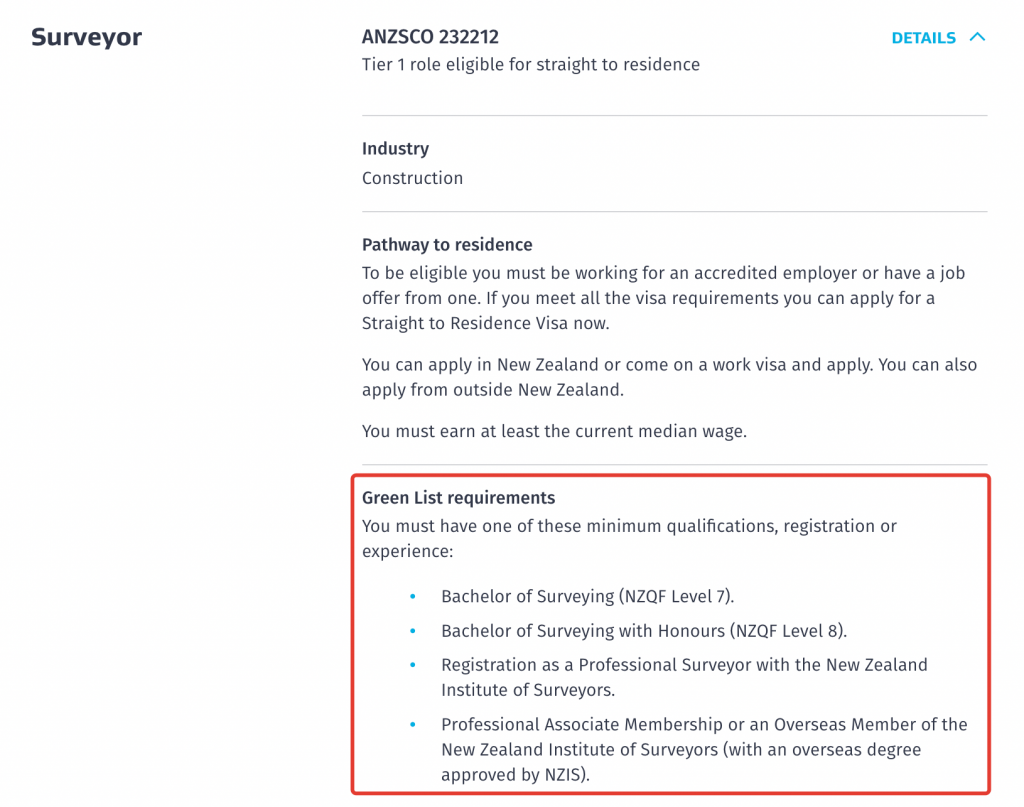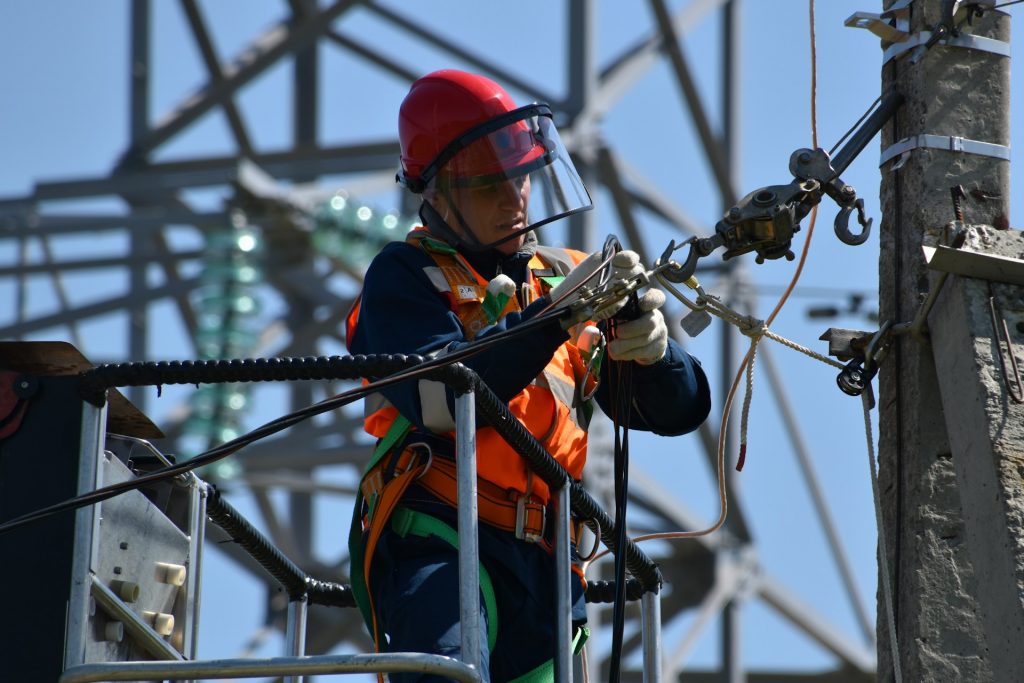In this article, we will tell you in detail which specialties are in greatest demand in New Zealand, which professionals have more chances to find a job and obtain the coveted permanent resident status, and what is the purpose of a list of in-demand specialties – the Green List.
Content
- Lists of in-demand specialties – Green List
- How to find your specialty on the list
- What specialties are included in the list
- Who else is needed in New Zealand?
- What if my speciality is not on the lists?
- Job search

List of in-demand specialties – Green List
In New Zealand immigration rules there is such a thing as a list of in-demand specialties or Green List. It makes the process of obtaining a work visa and residence somewhat easier for those who have found a suitable employer. If your specialty meets all the requirements and is on this list, the employer will not need to prove to the authorities that they could not find a person with a suitable visa status for the position.
You can find the Green List on the Immigration New Zealand website.
All professions on this list are divided into two categories depending on which residency programme is available to them:
- Tier 1. Holders of these professions have access to the Straight to Residence programme. According to it, a candidate can apply for residence immediately as soon as they have found a job for an accredited employer;
- Tier 2. Holders of Tier 2 qualifications will have to work for 2 years for an accredited employer before they can apply for residence. They have access to the Work to Residence Visa.
The main requirement for both categories is to have a job or a job offer in one of the positions from the Green List, and to comply with the specified requirements for this qualification.
The work must be full-time (at least 30 hours per week), genuine and permanent or, if it is a fixed term contract, it must be for a minimum of 12 months.
There are also salary requirements. Usually, this should be at least the median wage (NZ$31.61 per hour from February 2024), but some occupations have higher requirements.
Attention! Advice on matters in this category can only be provided by a licensed Kiwi Immigration lawyer.
How to find your specialty on the list
For example, you are a surveyor. Type in this specialty to the search box on the Immigration New Zealand website page. We see that it belongs to Tier 1. This means that it is possible to obtain residence under the Straight to Residence programme. Click Details and get a more detailed explanation of the pathway to residence.
The bottom line is the most important. Here are all the requirements that a candidate must meet exactly in order to be on the list. As a rule, they include a qualification of a certain level, there are often additional requirements for experience in the existing specialty and salary. Be sure to pay attention to this.

Using the example of a surveyor, we see “You must have one of these minimum qualifications, registration or experience” – this means that having at least one of these requirements is enough to qualify for the programme.
If you do not know the name of your specialty in English or are unsure of the exact name, you can search for all professions in your industry by setting the Industry filter, or in the drop-down list in alphabetical order in the Role column.
What specialties are included in the list
Construction
Not those builders who work by hand, but project managers and managers of construction sites, besides, quantity surveyors and surveyors. These positions assume strong English and good management experience. Having a local New Zealand education will be an advantage. Intelligent professionals in this area are in great demand, and salaries range from 80 to 170 thousand New Zealand dollars per year, before taxes. Taxes will take away about 25 per cent of this amount.
If you want to assess the prospects for employment in your speciality and understand what kind of salary range you can count on in this case, we recommend the Careers website, it is quite easy to find all the necessary information there.
Engineering
Civil engineering, chemistry, geotechnics, electrical, electronics and mechanics. Separately, the lists include engineering technicians in civil engineering, electrical and electronics engineering, as well as telecommunication engineers. Almost all of these specialities are in demand, but more often this applies specifically to experienced engineers with good English. If something is missing, either skills or language, then there are chances too, but it will be more difficult. Salaries range from NZ$ 60,000 to NZ$ 200,000 per year, depending on specific activities and the company in general.
IT (Information Technology)
The most popular sphere in New Zealand and around the world. System administrators, programmers, analysts, web developers, and networking and telecommunications specialists. In our opinion, the biggest number of jobs in the country is in the IT sphere, the demand for such specialists is very high. Naturally, it is the experienced professionals who are most in demand, but nevertheless beginners find themselves since there are a lot of positions.
The salary of beginning specialists starts from 50-60 thousand per year, while experienced specialists receive an average of 70 to 100 thousand per year, and this is far from the limit.
Multimedia technology
There are designers and animators with good experience on the list, but it is still not so easy for them to find a job since it is often contractual and the number of vacancies is much lower.
Civil Machinery Operators
Excavator, bulldozer, loader, grader and crane operators. Such workers have higher wage requirements, meaning they must find a job with a pay above the median wage.
Other spheres
Chefs, scientists and environmentalists, food technologists, automotive electricians and diesel motor mechanics, as well as simply electricians and electromechanics are also on the list. For all of these specialists, salaries can vary on average from 40 to 100 thousand per year.
There are also such specialities on the list, under which it is extremely difficult to meet the requirements. For example, all medical professionals need to obtain local licensing.


Who else is needed in New Zealand
We would like to note that the real demand for specialists is not limited to official lists. As practice shows, it is really difficult to find smart specialists in different industries. For example, digital marketing is booming. Especially good prospects are for those who work in its technical component: SEO, PPC, analytics. And in general, finding a marketer who can accomplish the task better than it was actually formulated is a huge work.
There is also a shortage of staff in sales and service. Vacancies for economists, lawyers and other humanitarian areas are also regular, but this, of course, will require local education or experience.
In general, intelligent specialists are needed everywhere. Only in the absence of your profession in the official lists, the process of employment becomes somewhat more complicated. Many employers do not want to bother with the difficult process of obtaining work visas, even despite the lack of staff. The fact is that all these troubles for the sake of a foreigner are a kind of risk. Suddenly you are not so good, suddenly you haven’t gone through the adaptation process yet. A lot of effort will be spent, and the risks that you will not cope with the work are great. Moreover, firing a person in New Zealand isn’t easy either.
What if my speciality is not on the list
There are 3 options:
- Look for a job remotely if you are very cool with international experience.
- Come to New Zealand, for example, to improve your language in English courses, and at the same time try to find an employer who really needs you.
- Get an education in New Zealand on the basis of an existing one or from scratch in 1, 2 or 3 years, after which you will receive a Post Study Work Visa for a period of 1 to 3 years, and this difficulty will disappear.
Job search
The shortage lists are quite extensive. However, it is very difficult to find a job remotely, and even being in New Zealand it will be difficult if you do not have a work visa. Please note that even if you are on the lists, no one can guarantee you a job. Everything always depends only on you, your skills and the ability to present yourself.
Good English is the first thing that influences employment success. Please take it seriously. You should not count on work from businesses of your compatriots, or expect that it will somehow happen itself. No matter how good a specialist you are, in a new country, you have to prove your professionalism again, from scratch.
Naturally, great importance is attached to your professional skills. Besides this, you need to understand that you have come to a new country. And here you need to play by local rules to get attention. Properly write a CV, write letters correctly, present yourself correctly in a telephone and personal interview. All this needs to be prepared, this will not happen by itself.
To approach the process as prepared as possible, we have made an article for you about finding a job in New Zealand. There you will find tons of useful information, as well as links to our workshops and webinars on finding jobs. Our Kiwi Support project can provide help in writing a resume correctly and prepare you for an interview.
Finding a job can be difficult even at home, and even more abroad. Based on our experience and observations, we can say that we have met both positive and negative examples of employment. Someone needed a few days, someone spent many months and left with nothing. But the majority still manage to stay in the country and gain a foothold.
Read Further:
Immigration Through Study In New Zealand
Fill out the application form to choose education options



